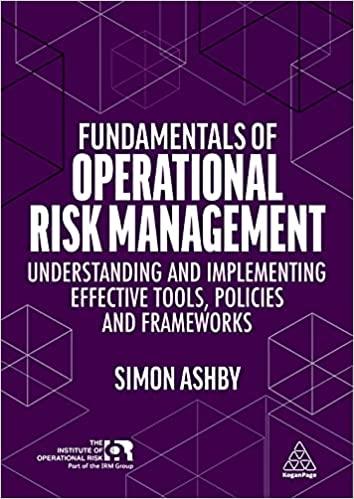Question
Instructions Answer all the questions The Terms of Reference have gaps Develop a comprehensive Inception and financial proposal Focus on one district with poor education
Instructions
Answer all the questions
The Terms of Reference have gaps
Develop a comprehensive Inception and financial proposal
Focus on one district with poor education performance in your area.
Follow the format of writing consultancy inception and final report
In case the instructions are not clear, consult the module instructor on module WhatsApp group
Adoption of ICT in Teaching and Learning in Africa
A survey show that 1500 African education and ICT professionals shows that, despite the importance of ICT in education, there is insufficient awareness in many schools, colleges, institutions and government departments of the benefits it brings. 57 per cent of those surveyed by eLearning Africa said that educators in their own countries are still not sufficiently aware of the benefits of using ICT in education although 95 per cent agreed that ICTs are the key to improving education in their own country.
Reluctance, according to the report, was a major theme emerging from teachers and educators; many revealed that their attitude towards ICTs in education was not always shared throughout their institution.
The report identifies a number of obstacles, preventing the greater use of ICTs in education and training. These include the cost of services and equipment, poor infrastructure and a lack of awareness about how best to use ICT for teaching and learning. 74 per cent of teachers also said they were not provided with enough support to improve their digital literacy. Only a third (33 per cent) of primary school teachers said they had been properly taught digital skills.
Whilst the failure of teachers and educational institutions to take up the technological challenge is disappointing, says Elletson, there is little doubt that in many African countries, the contribution ICTs are making to improving training is having a significant impact on performance and growth in key sectors.
In the agricultural sector, for example, 91 per cent of survey respondents involved in farming say that ICTs have led to increased yields, 87 per cent say they have helped them to develop new business opportunities and 71 per cent say they have used them to adopt new farming techniques. They may be having a wider environmental benefit too 90 per cent say that ICTs contribute to better food security and sustainable development in their region.
It is clear that, with a greater focus on using ICTs effectively to improve education and training, African economies can benefit substantially, says Burgess. The Report concludes that raising the awareness and skills of teachers and learners is crucial for ICT integration to be successful. A lack of awareness about the benefits, as well as the lack of digital skills, leads to reluctance to embrace them.
Required:
Question one
Terms of Reference
(1)The Local Government in your country has asked you to use the above information, submit the inception report and financial proposal to the Local Government chairperson detailing the technical approach to the assignment. (30 marks)
(2)Assume that you have been offered the consultancy work, submit a consultancy report to the chairperson of the Local Government. (50 marks)
Question 2
Both consultants and clientsvoice concerns over the way the consulting process is managed. Occasionally, the consultants and clientsturn out to be unscrupulous. Some employees in organizations take advantage of consultants toforward their agendas. The consultants' desire to acquire contracts to provide consulting services has also led them to violate their expertise.
Determine the reasons behind the unethical actions of Africanconsultants and clients. Make suggestions and provide both sides advice on how to act morally and professionally. (20 marks)
FINAL REPORT FORMAT
Cover page
Acknowledgement
Abbreviations/ acronyms
Abstract/ executive summary (title, where, objectives, methodology, findings, recommendations)
Table of content
List tables/ graphs, pie charts/ figures
1.0 Back ground (about the study/ industry analysis)
Introduction ( focus on the organisation)
Objectives of study
Study focus
Scope of work( understanding of the assignment)
2.0 Literature Review
3.0 Methodology
Study design
Sampling
Sample size
Sampling procedure
Data collection methods
Data collection tools
Validity and reliability of quantitative and qualitative tools.
Control of biases
Quality control and data management
4.0 Findings (characteristics of respondents, per objective)
5.0 Recommendations (as per each finding/ objectives)
Operationalization of the recommendations
| Objective | Findings | Recommendations | Person responsible | Time frame | Budget | Expected outcome |
Conclusion
Appendix (tools, and other supporting documents that were used in the field)
References
Step by Step Solution
There are 3 Steps involved in it
Step: 1

Get Instant Access to Expert-Tailored Solutions
See step-by-step solutions with expert insights and AI powered tools for academic success
Step: 2

Step: 3

Ace Your Homework with AI
Get the answers you need in no time with our AI-driven, step-by-step assistance
Get Started


